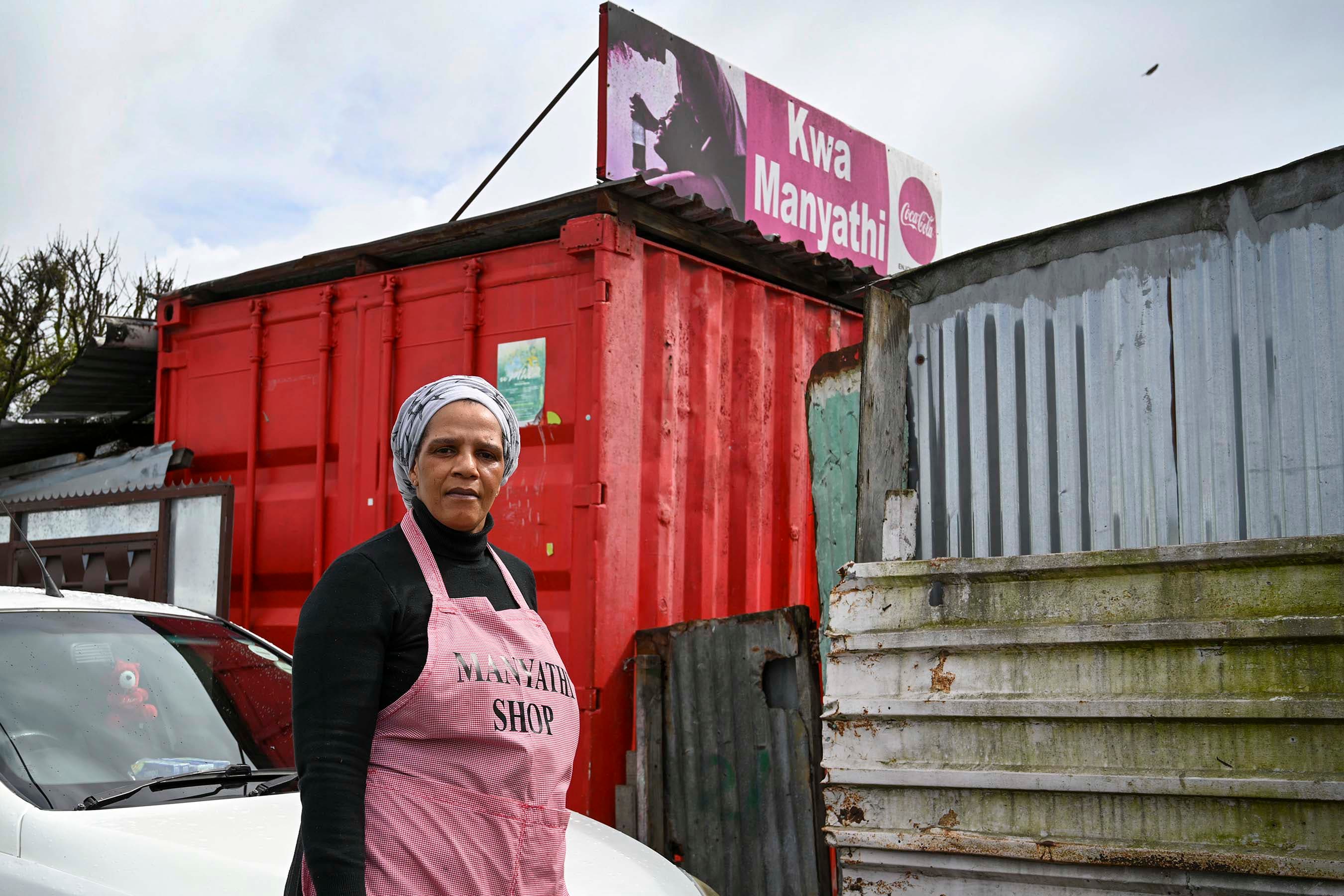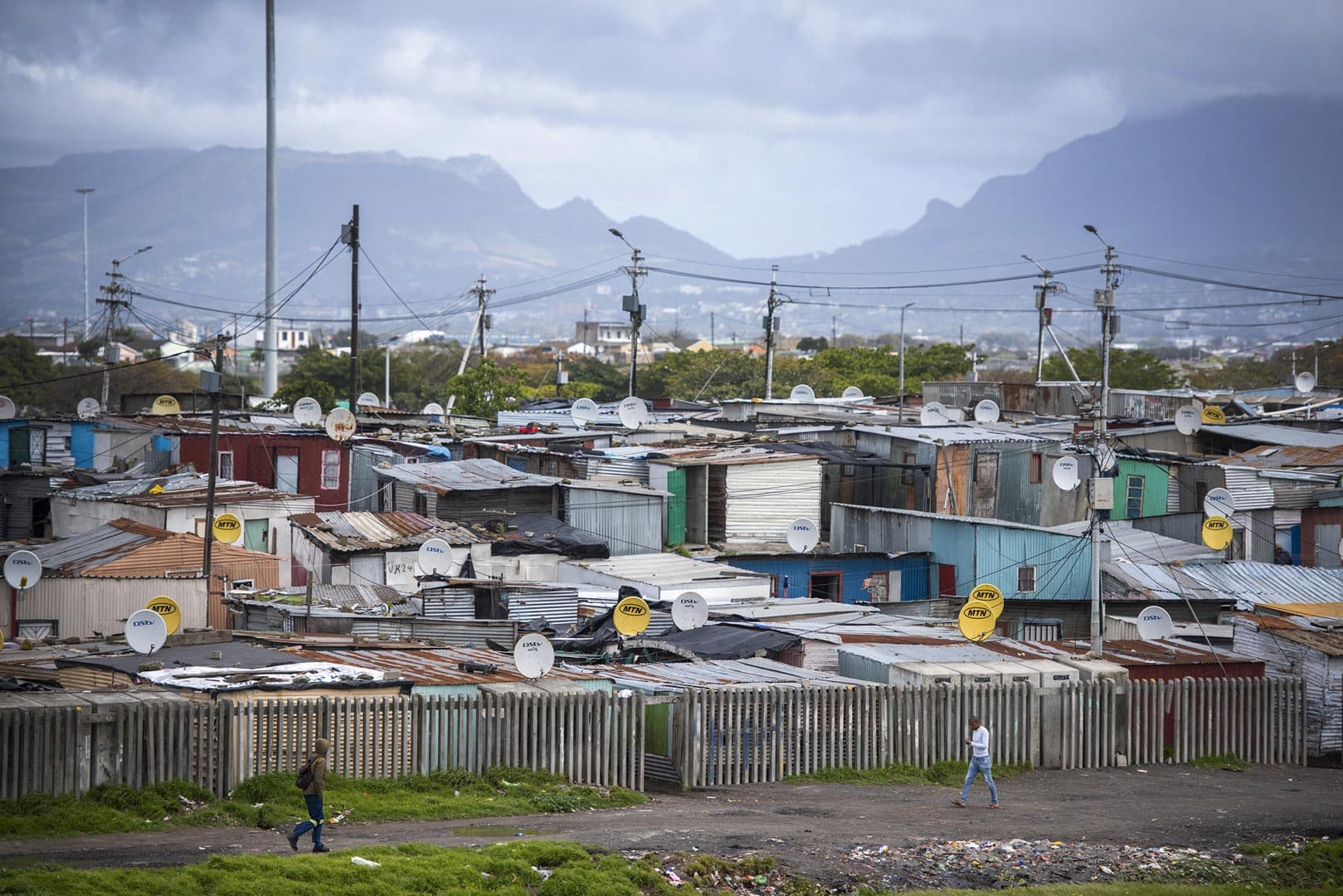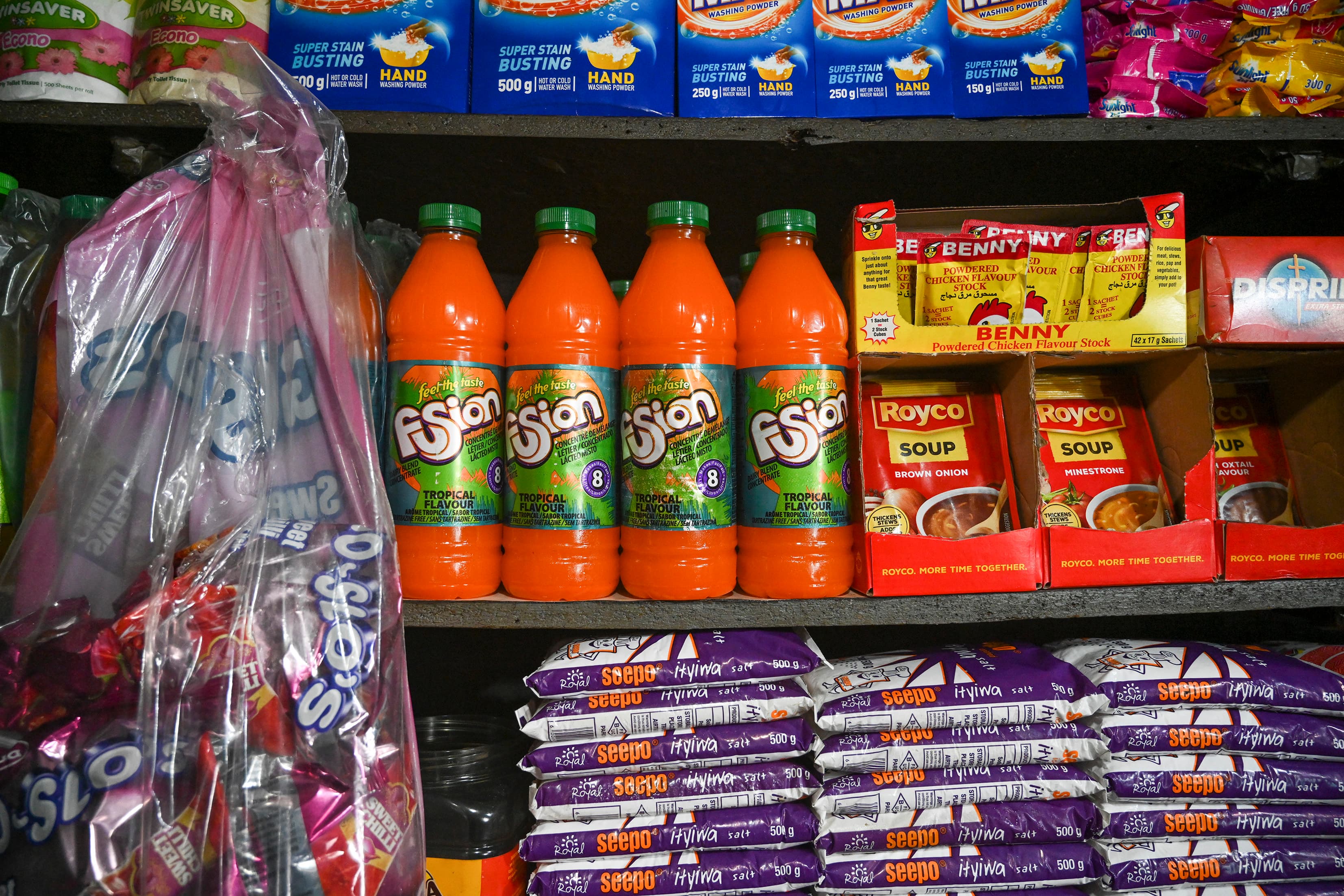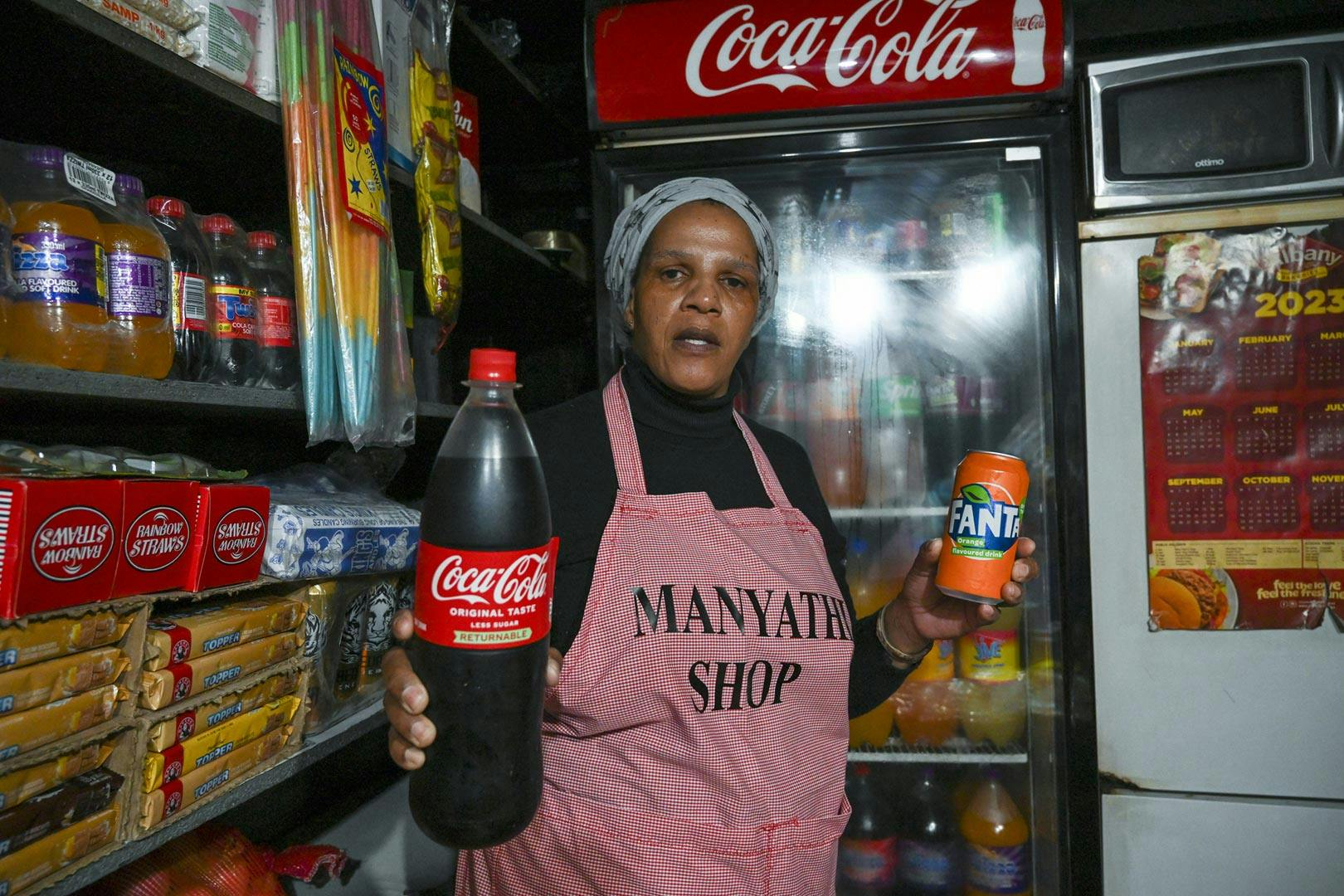Manyathi Habe runs a small convenience store in Nyanga East, a large, densely packed township a dozen miles from Cape Town’s central business district. She stocks sodas and other cold drinks in a Coca-Cola-emblazoned refrigerator, which the soft drink company gave her in return for the free advertising.
Habe doesn’t sell as much soda as she once did. In 2018, South Africa implemented a tier-based excise tax, known as the Health Promotion Levy, on many kinds of sweetened beverages, including soda. The higher the sugar content of the drink, the higher the tax.

After the levy was adopted distributors hiked the price of a can of soda by between two and five South African rands, or as much as 40 U.S. cents. Habe’s customers began to complain that sodas were too expensive, and sales dropped, she said in a recent interview.
Though Habe and her customers weren’t happy about the price hike, lowering sales was the intended goal of the tax.
Over the past decades, South Africa has experienced soaring rates of obesity and the non-communicable diseases it contributes to, including diabetes, high blood pressure and heart disease. Health experts blame that rise, in part, on an overconsumption of sugar. Sweetened beverages are a prime delivery mechanism.
Models show that in the long run, sugar taxes can bring down obesity rates.
While public health experts celebrated the adoption of the levy in South Africa, their enthusiasm was tempered by a fierce fight that led to a weaker law than they wanted, and are concerned by recent signs that the country’s powerful sweetened-beverage manufacturers are trying to undermine it.
Industry groups have fought off efforts to expand the law to cover other kinds of products, such as fruit juice, and also convinced government officials to retreat from a planned tax hike.
The sugar and beverage industries “are eroding the impact of the tax,” said Nzama Mbalati, who heads the Healthy Living Alliance (HEALA), a coalition of nutrition-focused South African civil society groups. “We are seeing a new epidemic of obesity spilling out and we are seeing the government treating the industry with kid gloves.”
The mixed experience in South Africa, which was the first African country to adopt a sugar tax, reflects the tactics the billion-dollar global sugar and sweetened beverage industry uses to fight taxes.
Countries around the world began introducing sugar taxes in earnest in the 2010s. In some respects, the effort has had remarkable success: at least 121 such taxes covering more than half of the world’s population have now been adopted, according to the World Bank.
Yet aggressive lobbying campaigns have derailed or defanged proposed laws in many other countries, including Colombia. In Cook County, Illinois, home to Chicago, a sugar tax was reversed, in part because of industry opposition.
While the details of each sugar tax differ, the sugar and soda industries have typically keyed in on the same, disputed, set of claims: that sugar taxes are ineffective as a public health tool, that they lead to tens of thousands of job losses and that the poor will shoulder most of the financial burden.
In South Africa, the industry’s goal is to prevent any expansion of the tax, or — if Mpho Thothela, the executive director of the Beverage Association of South Africa (BevSA), gets his way — to “kick the sugar tax aside, at least until there is better data.”
Thothela warns that the country is risking thousands of jobs and the stability of the sugar and beverage industries for a policy that has not yet proven that it will reduce obesity in South Africa.
While sugar taxes differ in the way they are structured, and most haven’t been around for very long, early evidence suggests that the industry’s claims don’t have merit. A meta-analysis of 62 different studies evaluating the impact of sugar taxes across the world found that taxes have succeeded in reducing consumption of sugary drinks, without any measurable impact on employment.
Lining up against the industry in South Africa is a group of activists and researchers who helped push through the tax, including Karen Hofman, the founding director of the South African Medical Research Council’s Centre for Health Economics and Decision Science/PRICELESS SA at the University of the Witwatersrand in Johannesburg.
“The industry is way ahead of the game,” Hofman said. “They have very, very good strategies and marketing and will try to undo any of these gains. I think in the end we’ll win, but it will take a long time.”
How the industry tried to stop the 2018 sugar tax
Over a decade ago, Hofman’s unit started looking for a policy solution to address South Africa’s ballooning obesity crisis.
Between 2003 and 2012, obesity rates climbed from 9% to 11% among South African men and jumped from 27% to 39% among women. As people gain weight, they are at greater risk of getting life-threatening non-communicable diseases.
The unit struck on a sweetened beverage tax to help reduce obesity rates, joining a collection of international advocates for the levies. That includes the World Health Organization, which has endorsed the taxes as an “evidence-based policy option that enable[s] healthier choices and improved diets.”
Designs vary, but ultimately, the goal is to place a tax on drinks with high sugar content or on the sugar in the beverages, compelling manufacturers to raise prices. The approach has curbed drink sales and reduced sugar consumption in many countries.
There’s a standard playbook from tobacco and alcohol that’s really just delay and obfuscate.
Karen Hofman, Centre for Health Economics and Decision Science in Johannesburg
Hofman and a team of researchers predicted that a 20% tax in South Africa would reduce obesity levels by 3.8% among men and 2.4% among women. Additional models showed the country could avert 85,000 strokes and the deaths of 72,000 adults over 20 years. In a May 2016 report, they also predicted the tax would save an estimated $400 million in healthcare costs in South Africa over 20 years, while bringing in new revenue.
In 2016, officials in South Africa’s National Treasury proposed a tax based on the sugar content of the beverages that would work out to roughly 20% for most drinks. It exempted alcoholic beverages, as well as water, pure fruit juice, unsweetened milk and milk products.
South Africa’s sugar and beverage industries rallied to try to stop the proposal from becoming law.
“There’s a standard playbook from tobacco and alcohol that’s really just delay and obfuscate,” Hofman said, and that strategy has since been adopted by the sweetened beverage and sugar industries. Researchers have cataloged a range of those strategies, including building alliances with key departments and professional associations to win their support, developing fake grassroots organizations and lobbying influential government officials and, when all else fails, threatening to sue to halt legislation.
In South Africa, websites sprang up, like “You & Sugar,” which is sponsored by the South African Sugar Association. The site features a quote from a doctor claiming that sugar is the “ultimate nutrition for the human body.” Elsewhere, the site dismisses the notion that sugar is a primary cause of increased obesity and non-communicable diseases, arguing instead for the importance of more exercise.
Corporations and trade alliances submitted industry-funded research to parliament during its hearings on the sugar tax. One of those studies concluded there were “no differences between sugar-sweetened beverages and other sources of calories” when it came to weight gain and risk factors including heart disease and diabetes. In its submission to lawmakers, the Consumer Goods Council of South Africa proclaimed sugar “a source of affordable energy” for “hungry and starving” South Africans, as they touted its benefits in keeping overheated workers hydrated.
At the same time, industry submissions tried to pick apart evidence the government and advocates brought to support the tax, questioning its integrity or dismissing it because the research was not conducted in South Africa.

Activists say this follows a model, deployed anywhere a sugar-sweetened beverage tax has been proposed, of industry cherry-picking evidence. BevSA’s Thothela said they were simply trying to grapple with the specific impact of the tax on South Africans, which he warned has disproportionately affected the poorest.
Activists bristle when the industry calls the tax regressive, arguing that the issue is broader market distortions that make highly processed foods more affordable than healthier alternatives.
In South Africa, where nearly a third of the population is unemployed, the industry found an even more potent argument. Opponents claimed that 18,000 to 24,000 jobs would be lost if the tax were implemented, more than three times higher than government estimates.
“It wasn’t long before the industry really whipped up a storm around potential job losses if there was to be a tax on sugary drinks,” said Trish Cotter, who leads the Food Policy Program at Vital Strategies, a global public health organization. “What it did was it made a lot of people nervous in the government.”
Although opponents could not stop the initial levy in South Africa, they succeeded in reducing it by about half. Earlier this year, after an aggressive industry-led campaign that condemned the increase as a “job killer,” South Africa’s finance minister promised the levy wouldn’t change for at least another two years so the industry could “diversify and restructure.”
South Africa’s experience proved informative in Ghana, where the president signed a sugar tax into law in April of this year. Amos Laar, a professor of public health nutrition at the University of Ghana, helped lead a coalition of activists, academics and government officials supporting the legislation. Much as the industry shares knowledge, tax supporters have learned to do the same, he said.
“The challenges [South Africa] encountered became a basis for our preparatory activities” Laar said, to rebut industry efforts to subvert the sweetened-beverage tax, including developing local evidence about the potential health impact. As a result, Ghana imposed the 20% tax that South Africa’s activists couldn’t achieve.
The impact of South Africa’s sugar tax

Despite the recent failure to increase the tax in South Africa, there is evidence the levy is achieving its initial goal of reducing the consumption of sugary drinks.
As prices went up, sales fell by 29% in urban areas, according to 2021 research spearheaded by PRICELESS. Poorer urban households reduced their consumption by 32%. The industry also created smaller bottles and reformulated their beverages to have less sugar – steps Thothela said they were willing to take even before the introduction of the tax.
And in its first four years, the tax generated an estimated $683 million in revenue. Activists said there has been a lost opportunity to direct those funds into health-related initiatives so that South Africans could draw a direct connection between the tax and better health. Instead, the funds have gone into South Africa’s general budget.
Hofman said that “it’s very early days” — too early to determine an overall impact on obesity.
Subscribe to our newsletter
Global health reporting, straight to your inbox
HEALA is still pressing to achieve the 20% tax rate and expand it to include pure fruit juice.
These efforts have kept the sugar and beverage industries on the defensive. Trix Trikam, SASA’s executive director, said the tax “has almost brought the [sugar] industry to its knees.”
As evidence, industry representatives are leaning heavily on a 2020 report commissioned by the National Economic Development and Labour Council, which showed that by 2019 the sugar industry had lost more than 9,700 jobs because of the tax, and it had cost the sugar-sweetened beverage industry an additional 1,100 jobs.
However, there is little information on the firm commissioned to carry out the study and insufficient detail for researchers to fact-check the conclusions, according to HEALA’s Mbalati.
Though progress is stalled, Mbalati is still encouraging the government not only to increase the tax, but also to adopt warning labels on the front of unhealthy food packages and limit the marketing of sugary drinks and other products, which is done in several other countries.
HEALA is also preparing more subtle campaigns to build public support by explaining to people who are skeptical of the benefits of the tax and how it can benefit their health.
And even as the beverage and sugar industries continue to chip away at the tax, HEALA is readying for a showdown.
“We will mobilize society, we will do big public demonstrations. We will confront the sugar industry and the other companies,” Mbalati said. “We are going to build pressure and get this tax back on track.”
